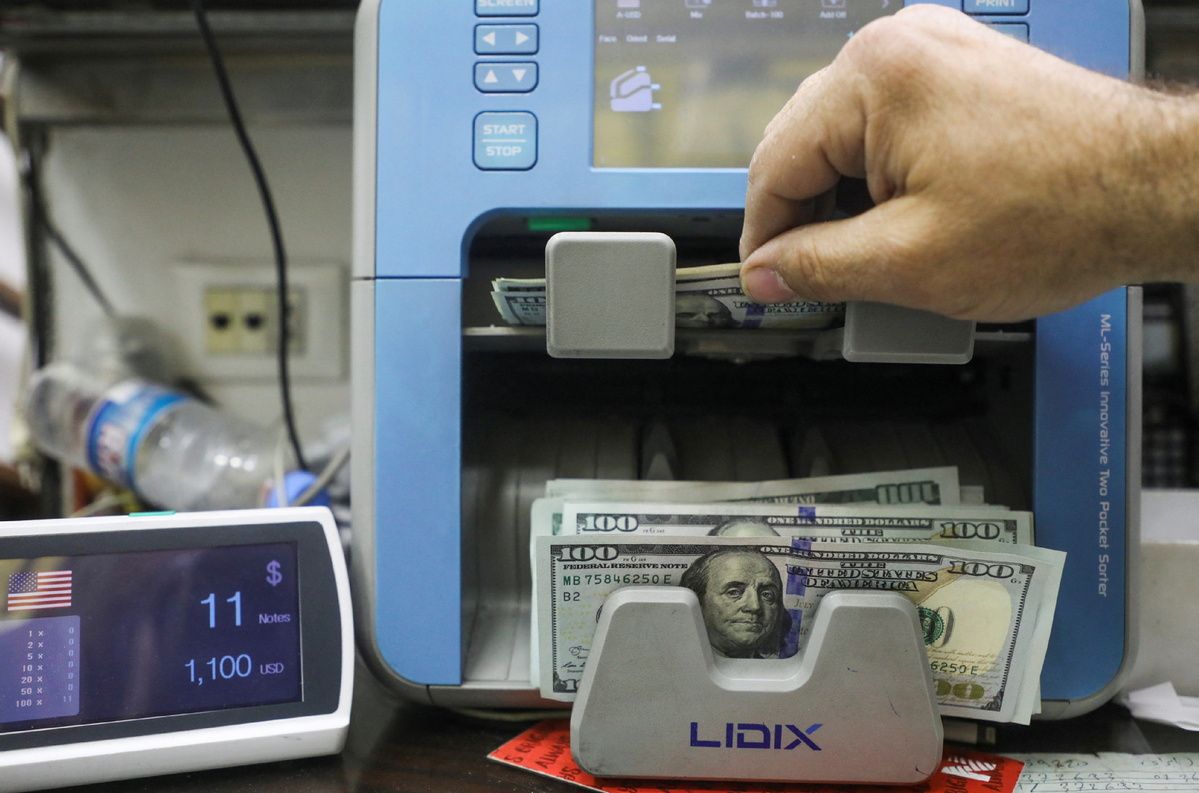source:China Daily Global editor:Wenny

A man counts US dollar banknotes at an exchange shop in Beirut, Lebanon March 18, 2022. [Photo/Agencies]
But IMF official expects dominance of the greenback to continue in short term
The raft of sanctions many nations have directed at Russia over its "special military operation"in Ukraine could unintentionally erode the global dominance of the United States' dollar, a top International Monetary Fund official has warned.
Gita Gopinath, the institution's deputy managing director, told the Financial Times newspaper the sanctions could lead to a more fragmented international monetary system because they will encourage the emergence of smaller currency blocs based on trade between nations, alliances, and continents.
"The dollar would remain the major global currency even in that landscape but fragmentation at a smaller level is certainly quite possible," she said when discussing the repercussions of sanctions that include limitations on the activities of Russia's central bank. "We are already seeing that, with some countries renegotiating the currency in which they get paid for trade."
Ironically, the sanctions the United States and its allies have imposed on Russia after the eruption of the Ukraine crisis could end up helping Moscow realize its long-held dream of breaking its reliance on the US dollar for most international transactions.
Russia is thought to keep around one-fifth of its foreign reserves in dollar-denominated assets that are largely held in France, Germany, Japan, and the United Kingdom.
With some nations now looking to isolate Moscow from the global financial system, Gopinath predicted more countries will use currencies other than the dollar when dealing with Russia, leading to more diversification of the reserve assets kept by nations' central banks.
"Countries tend to accumulate reserves in the currencies with which they trade with the rest of the world, and in which they borrow from the rest of the world, so you might see some slow-moving trends toward other currencies playing a bigger role," she explained.
But she said the dominance of the US dollar is unlikely to fade significantly in the short or medium term.
The dollar's share of international reserves had already began to slowly diminish long before the Ukraine crisis, falling from 70 percent to 60 percent, during the past two decades with the Australian dollar and China's RMB the main beneficiaries of that diversification.
Gopinath said Beijing had been internationalizing the RMB long before the crisis in Ukraine flared, and is far ahead of many other nations in that process.
But she said a significantly larger role for the RMB would be a "slow-moving process that takes time".
She told the Financial Times the situation in Ukraine will also lead to more use of so-called digital finance, which includes cryptocurrencies.
The Reuters news agency noted she had also said recently that the situation in Ukraine, while likely to slow global economic growth in the coming months, will probably not cause a global recession.